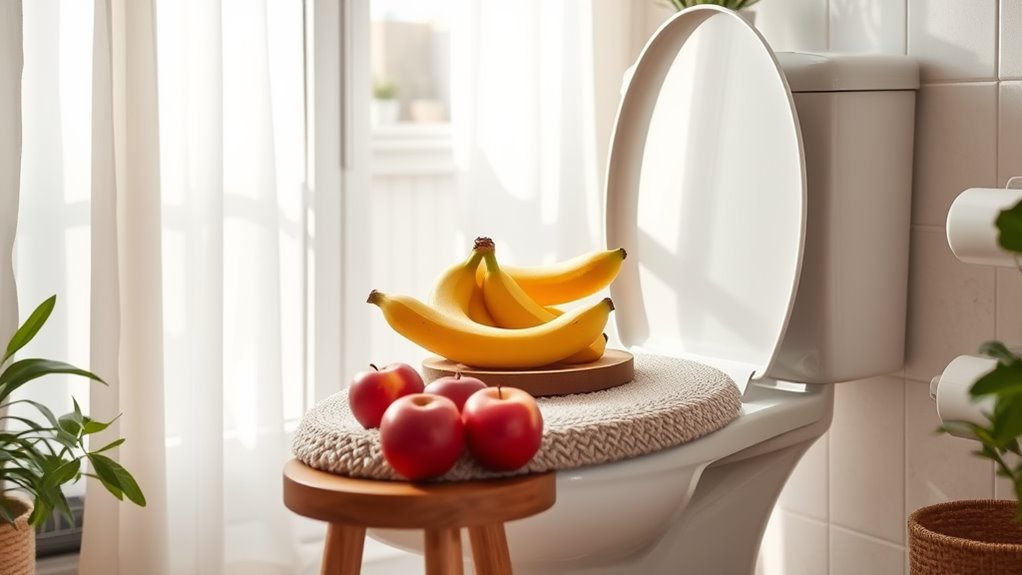Simple Tips for Better Digestion and Constipation Relief
To boost your digestion and relieve constipation, focus on increasing your fiber intake by adding fruits, veggies, and whole grains to your meals. Stay hydrated by drinking plenty of water and including hydrating foods. Regular exercise can significantly improve your digestive health, so aim for at least 30 minutes most days. Don’t forget to manage stress through relaxation techniques, and establish a consistent eating schedule to promote regular bowel movements. There’s more valuable information to explore!
Increase Fiber Intake
When it comes to improving digestion and relieving constipation, increasing your fiber intake is one of the simplest and most effective changes you can make.
Adding more fruits, vegetables, and whole grains to your diet can significantly enhance digestion care. Fiber helps bulk up your stool, making it easier to pass, and can prevent constipation, promoting overall gut health.
Stay Hydrated
Staying hydrated is crucial for maintaining healthy digestion and preventing constipation, as water plays a key role in softening stool and facilitating its passage through the digestive tract.
To improve your hydration:
- Aim for at least 8 cups of water daily
- Include hydrating foods like fruits and vegetables
- Limit caffeine and alcohol, which can be dehydrating
Additionally, proper hydration supports healthy bowel function and enhances the effectiveness of dietary fiber in alleviating constipation.
Incorporate Regular Exercise
Incorporating regular exercise into your routine not only boosts overall health but also plays a vital role in promoting better digestion and alleviating constipation.
Physical activity stimulates the muscles in your digestive tract, encouraging the movement of food through your system.
Aim for at least 30 minutes of moderate exercise most days, whether it’s walking, cycling, or yoga, to enhance your digestion effectively.
Manage Stress Levels
Managing stress levels is crucial for maintaining good digestive health, as heightened stress can lead to disruptions in your gastrointestinal functions.
Here are some effective strategies to keep stress in check:
- Practice mindfulness or meditation
- Engage in deep-breathing exercises
- Take regular breaks for relaxation
Establish a Consistent Eating Schedule
A consistent eating schedule can significantly improve your digestive health and alleviate constipation.
By eating meals at the same times each day, you help regulate your digestive system, promoting regular bowel movements. Aim for balanced meals that include fiber-rich foods, which further support digestion.
This routine not only helps your body anticipate food intake but can also enhance nutrient absorption.




